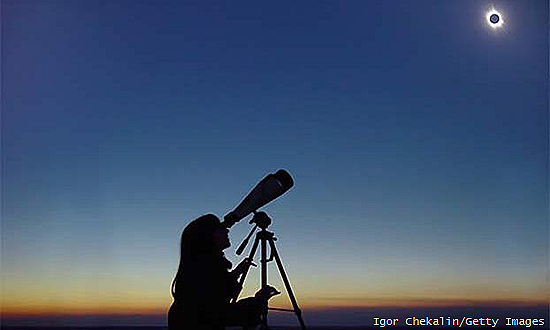
10 Reasons Why Space Exploration Matters to You
By Patrick J. Kiger, How Stuff Works, 31 October 2014.
By Patrick J. Kiger, How Stuff Works, 31 October 2014.
At the time of the moon landing in 1969, many people envisioned that by the beginning of the 21st century, space travel would become routine, and we would be visiting other planets in our solar system and perhaps even daring to venture into interstellar space.
Sadly, that future hasn't yet arrived. In fact, some people have started to question whether we need space travel anymore. Wasn't going to the moon good enough? Maybe the U.S. should leave space exploration to private companies - or even other countries.
But those who've long dreamed of humans becoming a truly spacefaring race argue that exploring space provides down-to-earth benefits in areas such as health, mining and security. And more inspirational benefits, too. Here are some of the most compelling arguments for continuing the exploration of space.
10. Protection From a Catastrophic Asteroid
Once every 10,000 years or so an asteroid hits our planet. Shouldn't we be prepared?
If we don't want to go the way of the dinosaurs someday, we need to protect ourselves against the threat of being hit by a big asteroid. According to NASA, typically about once every 10,000 years, a rocky or iron asteroid the size of a football field could smash into our planet's surface and possibly cause tidal waves big enough to inundate coastal areas.
But it's the real monsters - asteroids about 100 meters (109 yards) across or bigger - that we really have to fear. Such a collision would unleash a firestorm of heated debris and fill the atmosphere with sun-blocking dust, which would wipe out forests and farm fields and starve the human and animal life that it didn't immediately kill. A wisely-funded space program enables us to spot a dangerous object long before it strikes Earth, and send a spacecraft to plant and detonate a nuclear explosion that could nudge it off its collision course [sources: NASA, NSS].
9. It Will Lead to More Great Inventions
The space blanket, which helps people to warm up quickly, was invented by NASA scientists.
A very long list of gadgets, materials and processes originally were developed for the U.S. space program but found other applications back on Earth - so many that NASA has an office that looks for ways to repurpose space technology as products. We all know about freeze-dried food, but there are plenty of others. In the 1960s, for example, NASA scientists developed a plastic coated with a metallic reflecting agent. When used in a blanket, it reflects about 80 percent of a user's body heat back to him or her - an ability that helps accident victims and post-marathon runners to stay warm.
Another more obscure but valuable innovation is nitinol, a flexible but resilient alloy that was developed to enable satellites to spring open after being folded into a rocket. Today, orthodontists equip patients with braces made from the material [source: Independent].
8. It Will Be Good for Your Health
The Phantom Torso, seen here on the International Space Station (2001), measures the effects of radiation on organs inside the body, using a torso similar to those used to train radiologists on Earth.
|
The International Space Station alone has generated scores of medical innovations with uses on Earth, such as a method for delivering cancer-fighting medication directly to tumours; gadgetry that a nurse can hold to perform ultrasounds and transmit the results to a doctor thousands of miles away; and a robotic arm that can perform delicate surgery inside an MRI machine.
NASA scientists, in an effort to protect astronauts from losing bone and muscle in the microgravity environment of space, also helped a pharmaceutical company to test Prolia, a drug that today helps protect elderly people from osteoporosis. It was easier to test this drug in space as astronauts lose around 1.5 percent of their bones each month in microgravity, whereas an elderly woman on Earth would lose 1.5 percent per year to osteoporosis [source: Kiger].
7. Space Exploration Is Inspirational
Astrophysicist Neil deGrasse Tyson says space exploration gets people interested in science and
related fields.
|
If we want a world in which our kids aspire to being great scientists and engineers instead of reality show hosts, rappers or Wall Street financial tycoons, having a great enterprise to attract and inspire them is crucial.
As astronomer, author and host of TV's "Cosmos" reboot Neil deGrasse Tyson recently told National Public Radio, "I could stand in front of eighth-graders and say, 'Who wants to be an aerospace engineer so you can design an airplane 20 percent more fuel-efficient than the one your parents flew?' That doesn't usually work. But if I say, 'Who wants to be an aerospace engineer to design the airplane that will navigate the rarefied atmosphere of Mars?' ...I'm getting the best students in the class."
6. It's Important for National Security
The International Space Station and the docked space shuttle Endeavour orbit Earth during Endeavour's final mission on May 23, 2011. Could one country launch space-based weapons at another?
|
The U.S. needs to detect and prevent a hostile nation or terrorist group from deploying space-based weapons or attacking its navigational, communications and surveillance satellites. And while it and other major powers such as Russia and China are signatories of a 1967 treaty that forbids nations from claiming territory in space, it's not hard to think of examples of past treaties that were tossed aside when someone saw a benefit in doing so.
Even if the U.S. privatizes much of space exploration, it still wants to ensure that companies can mine the moon or asteroids without worrying that interlopers will usurp their claims or steal their production [source Minter]. That's why it's crucial to back up diplomacy with a NASA spacefaring capacity that could be converted to military use, if needed.
5. We Need Raw Materials From Space
The Nili Fossae region of Mars is one of the largest exposures of clay minerals discovered by the OMEGA spectrometer on the Mars Express mission.
|
There's gold out there in the cosmos, and silver, platinum and other valuable substances, too [source: McKie]. A lot of attention has been given to a private-sector venture that envisions mining operations on asteroids, but space miners wouldn't have to go that far to find riches.
The moon, for example, is a potentially lucrative source of helium-3 (used for certain MRIs and a possible fuel for nuclear power plants), whose increasing rarity on Earth has jacked up its price to US$5,000 a litre. The moon also is believed to be a potential source of rare earth elements such as europium and tantalium, which are in high demand for use in electronics, solar panels and other advanced gadgetry [source: Ouellette].
4. Nations Can Work Together Peacefully
Crews from three different countries have a meal together at the International Space Station, 2001.
Earlier, we mentioned the ominous notion of international conflict in space. But it doesn't have to be that way, as evidenced by the cooperation of multiple nations on the International Space Station. And a U.S. space program could allow other countries, large and small, to join in their exploration efforts.
A 2006 paper published by the Centre for Strategic and International Studies, a Washington-based think tank, points out the benefits of international cooperation. For one, the hefty costs could be spread around. For another, it could forge stronger diplomatic ties between nations such as the U.S. and India, and help create new jobs both in both places [source: Broniatowski et al.].
3. It Could Help Answer a Really Big Question
A giant model of the James Webb Space Telescope was unveiled during the 2010 World Science Festival in Battery Park City, Manhattan.
|
About half of Americans believe that life exists somewhere else in the cosmos, according to a 2013 Huffington Post/YouGov poll. And a quarter of them think that extraterrestrials already have visited our planet [source: Swanson].
But so far, sweeps of the sky with Earth-based telescopes for signals that might be beacons from distant civilizations have proven fruitless, possibly because the Earth's atmosphere interferes with such messages reaching us. That's why searchers for extraterrestrial civilizations are eager for the deployment of more orbital observatories such as the James Webb Space Telescope. That satellite, which is expected to launch in 2018, will have the ability to search for the chemical signs of life in the atmospheres of distant planets outside our solar system [source: Kramer]. That's a start, but an even more aggressive space-based effort to look for clues of extraterrestrials might finally help us to answer the question of whether we have company out there.
2. Humans Need to Fulfil Their Urge to Explore
Former NASA administrator Michael Griffin said, "Who among us does not know the wonder and mystery and awe and magic of seeing something...never seen before?"
|
Our primitive ancestors spread from east Africa to all over the planet, and since then, we've never stopped moving. We're running out of fresh territory on Earth, so the only way to meet this ancient urge is to find somewhere new to go - whether it's making brief jaunts to the moon as a tourist, or signing up for an interstellar voyage that will take multiple generations.
In a 2007 speech, former NASA administrator Michael Griffin differentiated between "acceptable reasons" and "real reasons" for space exploration. Acceptable reasons would be issues like economic benefit and national security. But real reasons include concepts like curiosity, competiveness and monument-building.
"Who among us does not know the wonder and mystery and awe and magic of seeing something, even on television, never seen before, an experience brought back to us by a robotic space mission?" Griffin added that "when we do things for real reasons as opposed to acceptable reasons, we produce our highest achievements."
1. We May Need to Colonize Space to Survive
In the 2000 movie 'Red Planet,' a group of astronauts travel to Mars to investigate human living conditions on the planet.
|
Already, our ability to put satellites in space is helping us to monitor and combat pressing problems on Earth, from forest fires and oil spills to the depletion of aquifers that people depend upon for drinking water [source: Fowler].
But our burgeoning population, rampant greed and thoughtlessness about environmental consequences have already done pretty severe damage to our planet. According to a 2012 survey of research, most scientists estimate that Earth has a carrying capacity of between 8 and 16 billion - and we already have a population of over 7 billion [source: UNEP]. That's led some futurists to argue that we should be preparing to colonize another planet, and soon. Your life - or those of your descendants - might depend upon it.
Author's Note:
I was a child in the 1960s, a time when many of us believed that someday we would be flying off into the cosmos in search of adventure. I can't say precisely when that dream ended for me, but I remember that back in the mid-1990s, the British folksinger Billy Bragg recorded a song that seemed to capture some of what I felt. In "The Space Race is Over," Bragg sang of staring at the moon as a child, and dreaming that night of walking on the Sea of Tranquillity.
But decades later, he stood staring at the same sky with his young son, who asked him, "Why did they ever go?" As Bragg lamented, "The space race is over, and I can't help but feel that we're all just going nowhere." Despite the beauty of his lyrics, I must differ with him respectfully on that last point. I continue to believe that humanity still has a chance to become a truly spacefaring race, and that we must find a way to do so.
Related Articles:
Article Sources:
1. Austen, Ben. "After Earth: Why, Where, How, and When We Might Leave Our Home Planet." Popular Science. March 16, 2011. (Sept. 14, 2014)
2. Bragg, Billy. "The Space Race is Over." Metro Lyrics. 1996. (Sept. 14, 2014)
3. Broniatowski, D.A. et al. "The Case for Managed International Cooperation in Space Exploration." MIT. 2006. (Sept. 14, 2014)
4. Colucci, Lamont. "America Must Retake Lead in Space Exploration." US News. Dec. 11, 2012. (Sept. 14, 2014)
5. Fowler, Wallace. "Anniversary Shows Us that NASA and Space Exploration are Worth Their Costs." The University of Texas Austin. July 21, 2014. (Sept. 14, 2014)
6. Government Accountability Office. "Actions Needed to Improve Transparency and Assess Long-Term Affordability of Human Exploration Programs." May 2014. (Sept. 14, 2014)
7. Independent. "50 years, 50 giant leaps: How Nasa rocked our world." July 29, 2008. (Sept. 14, 2014)
8. Griffin, Michael. "The Real Reasons We Explore Space." Air & Space Magazine. July 2007. (Sept. 14, 2014)
9. Kiger, Patrick J. "Innovations Aboard the ISS." National Geographic. March 2014. (Sept. 14, 2014)
10. Kramer, Miriam. "Want to Find Alien Life? It Will Take A Lot of Luck." Space.com. May 26, 2014. (Sept. 14, 2014)
11. Kueter, Jeff and Sheldon, John B. "An Investment Strategy for National Security Space." Heritage Foundation. Feb. 20, 2013. (Sept. 14, 2014)
12. McKie, Robin. "Sky Mining." Cosmos. Jan. 8, 2013. (Sept. 14, 2014)
13. Minter, Adam. "The Asteroid-Mining Race Begins." Bloomberg View. Sept. 8, 2014. (Sept. 14, 2014)
14. NASA. "Near Earth Object Program." Sept. 15, 2014. (Sept. 15, 2014)
15. NASA. "Space Shuttle Program: Spanning 30 Years of Discovery." (Sept. 14, 2014)
16. National Space Society. "Position Paper: Protecting Earth from Cosmic Impacts." February 2014. (Sept. 14, 2014)
17. National Public Radio. "'Space Chronicles': Why Exploring Space Still Matters." Feb. 27, 2012.
18. Ouellette, Jennifer. "This Moon was Made for Mining (Helium-3)." Discovery News. Feb. 21, 2011. (Sept. 14, 2014)
19. Space Ref. "Space Exploration: Real Reasons and Acceptable Reasons." Jan. 27, 2007. (Sept. 14, 2014)
20. Swanson, Emily. "Alien Poll Finds Half Of Americans Think Extraterrestrial Life Exists." Huffington Post. July 29, 2013. (Sept. 14, 2014)
21. UNEP. "One Planet, How Many People? A Review of Earth's Carrying Capacity." June 2012. (Sept. 14, 2014)
22. Wall, Mike. "December Test Flight Huge for NASA's Next Manned Spacecraft." Space.com. June 19, 2014. (Sept. 14, 2014)
Top image: Humans have been to the moon and robots have been to Mars. Why should we keep exploring? See pictures of space exploration. Credit: Igor Chekalin/Getty Images.


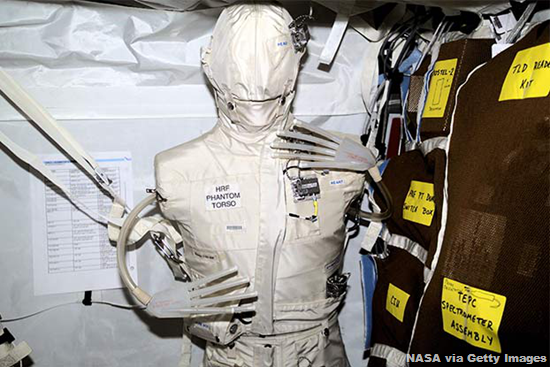
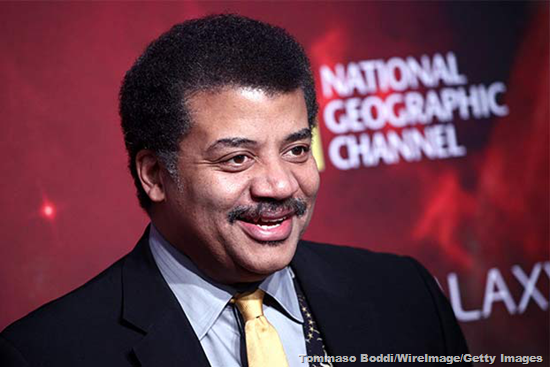
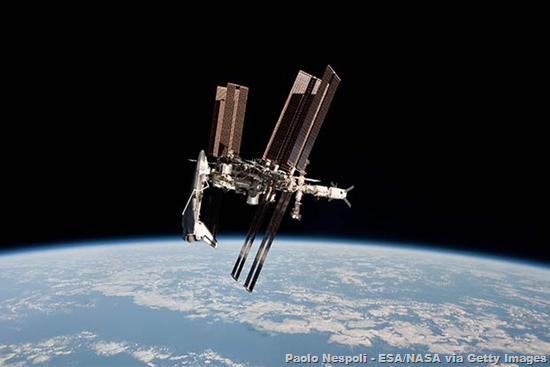
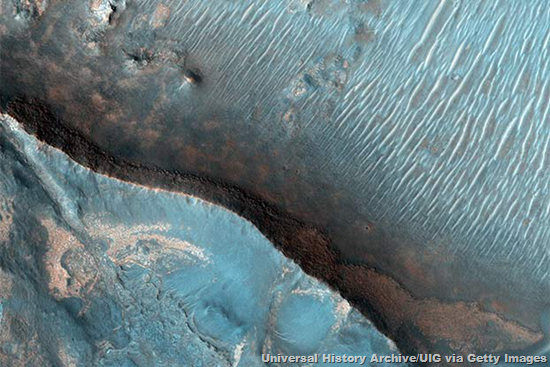



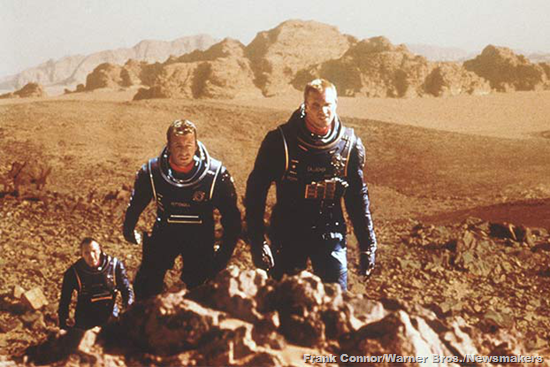
No comments:
Post a Comment
Please adhere to proper blog etiquette when posting your comments. This blog owner will exercise his absolution discretion in allowing or rejecting any comments that are deemed seditious, defamatory, libelous, racist, vulgar, insulting, and other remarks that exhibit similar characteristics. If you insist on using anonymous comments, please write your name or other IDs at the end of your message.